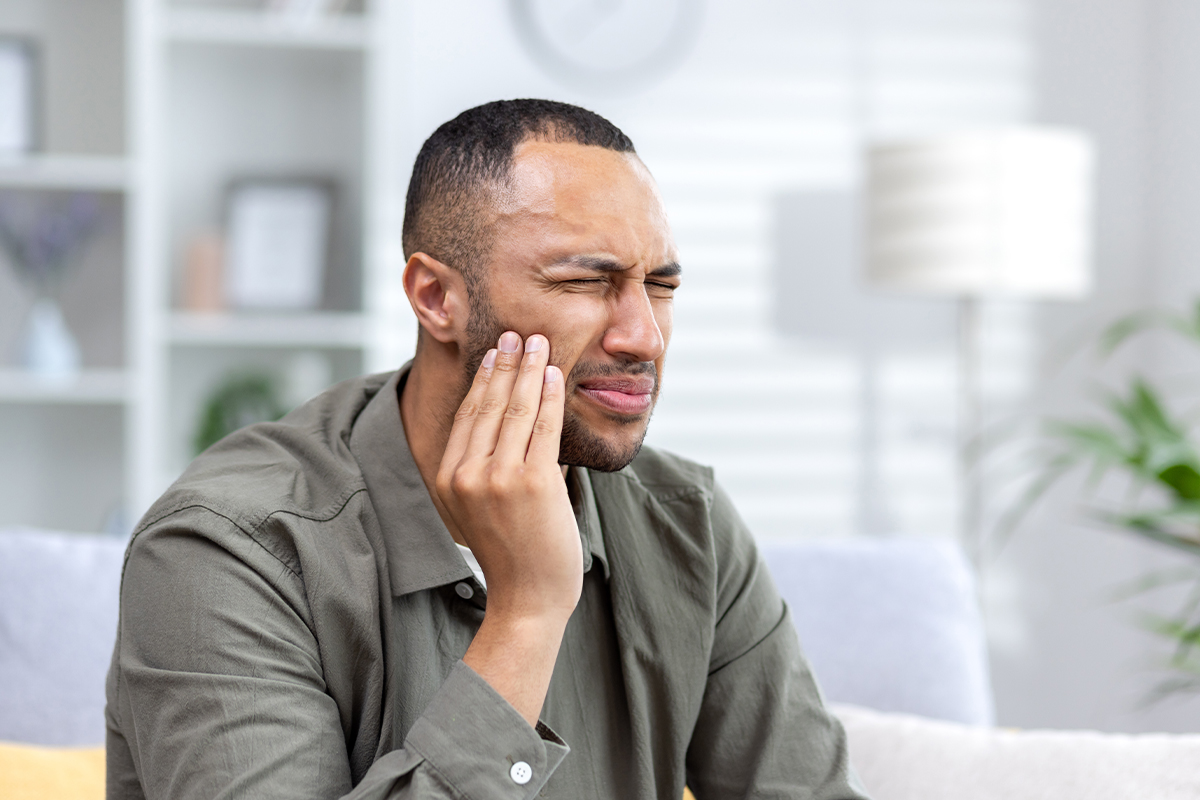
Dental emergencies can happen when least expected and often cause pain, stress, and anxiety. Whether it’s a knocked-out tooth, a severe toothache, or broken braces, knowing how to handle and prevent a dental emergency can make a huge difference in your oral health. This blog will explore the five most common dental emergencies, guide how to handle them and share tips to prevent them from occurring.
1. Tooth Knocked Out (Avulsed Tooth)
One of the most common dental emergencies is having a tooth knocked out, often due to sports injuries, accidents, or falls. Losing a tooth can be painful and alarming, but acting quickly can sometimes save it.
How to Handle It:
- Find the tooth immediately. Hold it by the crown, not the root.
- Rinse it gently with water (without scrubbing) if dirty, but don’t remove any tissue attached to it.
- Try placing it back in the socket carefully. If you can’t, store the tooth in milk or a special tooth preservation solution.
- Get to the dentist within 30 minutes for the best chance of reimplantation.
Prevention Tips:
- Wear a mouthguard while playing sports.
- Be mindful of your surroundings to avoid falls.
- If you’re involved in high-risk activities, consider extra protective gear.
2. Severe Toothache
A toothache can signal various dental problems, from cavities to infections. The pain can range from mild to severe and often feels worse over time.
How to Handle It:
- Rinse your mouth with warm saltwater to clean the affected area.
- Take over-the-counter pain relievers to alleviate discomfort.
- If the pain persists, schedule an emergency appointment with your dentist to address the underlying issue.
Prevention Tips:
- Maintain good oral hygiene with regular brushing and flossing.
- Visit your dentist for check-ups to catch problems early.
- Avoid sugary foods and drinks that contribute to tooth decay.
3. Broken or Cracked Tooth
A broken or cracked tooth can occur from biting hard food, accidents, or grinding your teeth. A cracked tooth may cause pain, especially when chewing, or a cosmetic concern. Don’t just sit with a chipped tooth and consider it a part of emergency dentistry.
How to Handle It:
- Rinse your mouth with warm water to clean the area.
- Apply a cold compress to reduce swelling if necessary.
- See a dentist Springfield as soon as possible. Depending on the severity, the tooth may need a crown, filling, or root canal.
Prevention Tips:
- Avoid chewing on hard objects like ice or popcorn kernels.
- Wear a nightguard if you grind your teeth during sleep.
- Practice proper dental care and attend regular dental visits to catch issues before they worsen.
4. Lost or Broken Filling
Fillings restore teeth damaged by decay but can wear out or break. When a filling falls out or cracks, it can expose the tooth, causing sensitivity or pain.
How to Handle It:
- Save the filling if possible and bring it to your dentist.
- Place a piece of sugar-free gum or wax into the cavity to protect it temporarily.
- Avoid chewing on that side of the mouth until you see the dentist.
Prevention Tips:
- Maintain regular dental exams to ensure fillings are in good condition.
- Avoid chewing hard foods or substances like ice or hard candy.
- Stay on top of your oral hygiene to prevent cavities from forming.
5. Abscessed Tooth
An abscessed tooth is a bacterial infection that forms at the root of a tooth or between the gum and tooth. This type of infection can cause significant pain, swelling, and, in some cases, fever.
How to Handle It:
- Rinse your mouth with salt water to reduce swelling and bacteria.
- Use over-the-counter pain relievers for temporary pain relief.
- Get to your dentist immediately. You may need an antibiotic or a root canal to clear the infection.
Prevention Tips:
- Brush your teeth thoroughly and floss regularly to avoid infections.
- Avoid letting cavities or gum disease go untreated, as they can lead to abscesses.
- Keep up with routine dental check-ups to detect and treat infections early.
How to Handle a Dental Emergency?
Quick action during a dental emergency is critical. Here are some general guidelines to follow:
- Stay calm: Panicking won’t help. Take a deep breath and assess the situation.
- Call your dentist: Don’t wait for the pain to subside. Emergency dental services are available, and prompt treatment can prevent further damage.
- Use over-the-counter pain relievers: These can help manage pain temporarily until you get professional help.
- Avoid certain foods: Avoid hot, cold, or sugary foods that might worsen the pain.
Dental emergencies are often unexpected, but you can minimize their impact by knowing how to prevent them and what steps to take when they happen. Being prepared is vital, whether using a mouthguard, keeping up with regular dental visits, or acting quickly when an emergency arises. If you experience a dental emergency, don’t hesitate to contact a dentist immediately.
